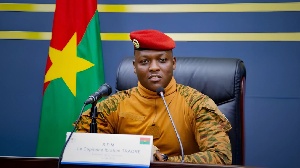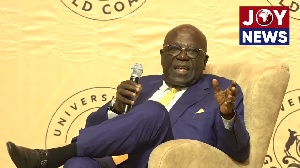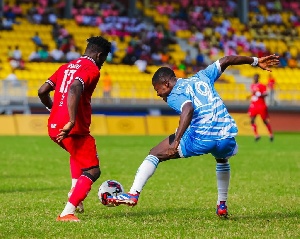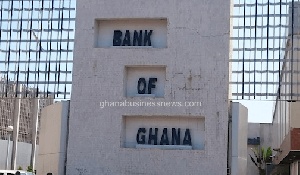Africa News of Thursday, 24 April 2025
Source: www.ghanawebbers.com
Burkina Faso: In Burkina Faso, Traoré's Legacy Could Extend Beyond Popularity and Promises
Burkina Faso faces challenges in turning its mineral wealth into stability and development. Captain Ibrahim Traoré, at 36, is the world's youngest president. He took office in September 2022 after a coup against Lieutenant Colonel Paul-Henri Damiba. Damiba had previously ousted former president Roch Kaboré earlier that year.
Traoré's administration has faced instability. Last week, the military government survived another coup attempt, one of several since he took power.
In his inaugural speech, Traoré highlighted multiple crises in Burkina Faso. These include security, defense, healthcare, social action, and infrastructure. He promised to fight terrorism and follow a transition timetable set by ECOWAS. This plan aims to restore democratic rule by July 1, 2024.
However, Burkina Faso has withdrawn from ECOWAS. Instead, it formed the Alliance of Sahel States with Mali and Niger. Both countries are also led by post-coup governments. Under Traoré's new transition plan, he may remain president until at least 2029.
Since taking office, Traoré's popularity has increased significantly. At President John Mahama's inauguration in Ghana on January 7, he received the loudest applause among African leaders. This reflects both his popularity and growing acceptance of military rule among Africa’s youth.
Afrobarometer reports that nearly two-thirds of Burkinabè support military intervention against abusive leaders. Additionally, 66% now accept military rule compared to just 24% in 2012. The survey was conducted during military rule and indicates general acceptance of the regime.
Traoré’s reforms resonate with many citizens beyond mere acceptance of military rule. He reversed salary increases for government officials while keeping his own earnings as a captain. To take control of mineral resources, he nationalized two gold mines and stopped exporting unrefined gold to Europe.
Instead, he inaugurated a national gold refinery expected to process 150 tonnes annually. Other achievements include establishing a National Support Center for Artisanal Cotton Processing and building a new airport.
While these efforts aim to industrialize Burkina Faso, risks remain regarding inefficiencies and corruption typical in state-owned enterprises across Africa. Furthermore, Traoré rejected financial aid from the IMF and World Bank. He believes Burkina Faso can develop without Western loans or conditions.
For some observers, this shows Africans managing their own affairs effectively. For young people in particular, it represents an opportunity to demonstrate their capabilities. However, most Burkinabè prioritize improving their daily living conditions above all else.
As global uncertainty rises and international aid declines, Africa must pursue self-reliance and resource control. Burkina Faso is rich in natural resources that could transform lives if managed well.
The country produces significant amounts of gold along with zinc, copper, manganese, phosphate, and limestone. It also has untapped reserves of diamonds, bauxite, nickel, and vanadium.
Burkina Faso has made progress economically over recent decades. GDP rose from $3.2 billion in 1990 to $18.3 billion in 2023; extreme poverty fell from 83% to 27.7%. Yet substantial challenges persist.
According to the Human Development Report for 2023/2024: Burkina Faso ranks low on human development indicators at position 185 out of 193 countries on the Human Development Index (HDI). It placed 149th out of 167 countries on the Sustainable Development Goals Index; about 64% live in multidimensional poverty.
Despite these challenges ahead lies economic potential for growth—averaging around 8% from 2025 to 2043 according to research by the Institute for Security Studies' African Futures team.
This growth could raise GDP per capita by $1,120 above current forecasts—lifting an additional two million Burkinabè out of poverty by then.
Governance reforms are crucial for unlocking this potential; good governance could further increase GDP per capita by $240 more than current projections—helping lift another half-million people out of extreme poverty.
To achieve this vision requires overcoming political instability alongside violent extremism while strengthening institutions.
Immediate focus must be on addressing terrorism which has caused loss over roughly forty percent territory—disrupting public services like schools or health facilities.
The UN Refugee Agency estimates over two million people are internally displaced due to conflict; humanitarian needs have surged by thirty-five percent between last year (2022) through this year (2023).











